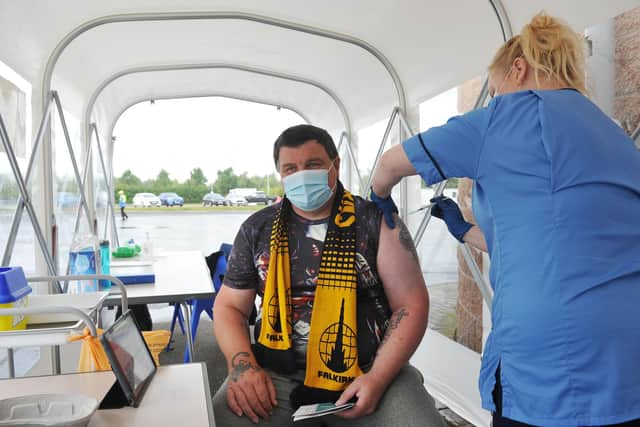Covid vaccine: Booster jabs in UK smack of selfishness but failing to act may see winter infection surge – Professor Eleanor Riley
Do we need them? If so, who needs them and why? And, is it morally defensible to give third vaccinations in the UK, where the epidemic finally seems to be coming under control, when billions of people around the world are still awaiting their first dose?
Booster vaccination provides a number of benefits. It triggers a new wave of antibody and T cells to ensure protection over the short to medium term. Boosters also expand the pool of memory cells to aid very long-term immunity. They can also improve the quality of the response, amplifying concentrations of the most effective antibodies.
Advertisement
Hide AdAdvertisement
Hide AdLastly, if the vaccine is modified appropriately, boosters can provide protection against newly emerging strains of the virus.
So, if boosters are so great, why do we so rarely actually get them?
Those of us with cats or dogs are wearily familiar with the requirement for annual revaccinations before we can send our furry friends to the kennels or cattery when we go on holiday.
A short-term immunity boost is partly for our pets’ own protection but is just as much about preventing commercially ruinous disease outbreaks within the kennels. However, in people, the only routinely administered annual vaccination is the seasonal ’flu jab, offered to children, older people and those at risk of becoming severely ill with the disease.
Strictly speaking, this isn’t a booster; although immunity to some unvarying bits of the virus will be boosted, protection relies on inducing entirely new immune responses to novel viruses.


We are probably most familiar with tetanus boosters: any deep or contaminated wound carries with it the threat of a tetanus jab and in some countries expectant mothers are given a booster so that sufficient antibodies cross the placenta to their unborn child to prevent tetanus associated with umbilical cord infections.
Anti-tetanus antibodies are not naturally topped-up as we rarely encounter the potent tetanus neurotoxin in our daily lives, but protection relies on immediate neutralisation of the toxin by high concentrations of antibodies infiltrating deep into the damaged tissue.
Nonetheless, for most diseases, vaccination in childhood or adolescence induces very long-lasting immunity that is either sufficient on its own to protect us for life or can be periodically boosted by fleeting encounters with the infectious organisms.
Advertisement
Hide AdAdvertisement
Hide AdIt is too early to tell whether Covid-19 is an exception to this rule. There are good arguments for adapting the current crop of vaccines to reflect the globally dominant virus variants and it may be prudent to use these for repeat vaccination of particularly vulnerable people.
But, as yet, there is no convincing evidence that boosters are needed simply to maintain protection in the rest of the population.
Prioritising booster vaccines for healthy Brits smacks of selfishness when only about one per cent of people in low-income countries have had even a single dose and vaccine demand still outstrips supply.
On the other hand, by the time the need for boosters becomes clear we could be in the grip of a winter surge of infection, and it may be too late to act.
To boost or not to boost is a very finely balanced call. The decisions don’t get any easier.
Eleanor Riley is professor of infectious disease immunology at the University of Edinburgh
A message from the Editor:
Thank you for reading this article. We're more reliant on your support than ever as the shift in consumer habits brought about by coronavirus impacts our advertisers.
If you haven't already, please consider supporting our trusted, fact-checked journalism by taking out a digital subscription.
Comments
Want to join the conversation? Please or to comment on this article.
